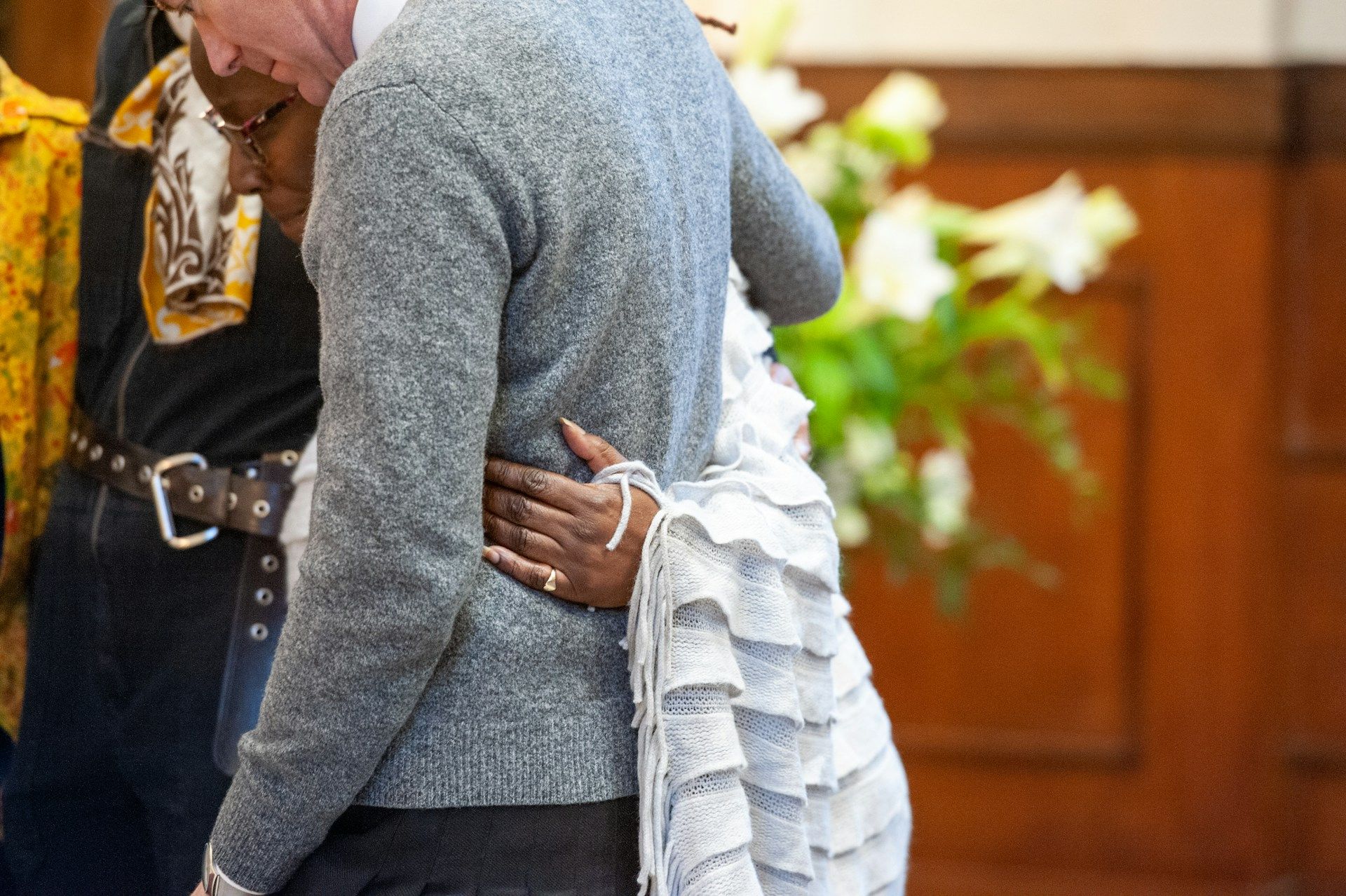When You Lose Someone
May, 2025
There is no preparing for the moment your world changes because someone you love is no longer here. Whether the loss was expected or sudden, peaceful or traumatic, something shifts in the atmosphere. A silence settles in. The world continues—but you don’t feel quite in step with it anymore.
Grief is not linear. It doesn’t arrive in tidy stages or move according to a schedule. It is as complex and unique as the love you carried for the person you’ve lost (Neimeyer & Harris, 2020).
The First Days
In the early days of loss, everything can feel surreal. You may feel numb, disoriented, or caught in a loop of disbelief. The mind struggles to make sense of absence. You might move through your day on autopilot, making arrangements, returning phone calls, or simply trying to breathe. These moments require tenderness. Rest. Hydration. Time.
There is no "right" way to grieve. There is only your way.
The Many Shapes of Grief
Grief shows up in unexpected ways. You might cry every day. Or not at all. You may feel angry, guilty, or even relieved—especially after long illnesses or complicated relationships. These feelings are not wrong. They are part of how your body and mind are trying to process something enormous (APA, 2023).
You may feel their absence most in the quiet moments: reaching for the phone, cooking a meal, hearing a song, or seeing something they would have loved. Grief often lives in the small spaces—those seemingly ordinary moments now tinged with memory.
When Grief Is Invisible
Not all grief is acknowledged by others. You might be grieving someone who wasn’t publicly close to you—a friend, a former partner, a caregiver, a pet, or someone with whom you had a complicated relationship. This is called disenfranchised grief, and it can feel especially isolating (Doka, 2019).
You do not need permission to grieve. Your loss matters because your love mattered.
How to Support Yourself
There is no fixing grief—but there are ways to support yourself through it:
- Talk to someone: A therapist, a friend, a grief group—somewhere you don’t have to pretend.
- Allow rest: Grief is exhausting. It affects your sleep, appetite, focus, and energy. Be gentle.
- Create rituals: Light a candle, write them a letter, keep something special close. Rituals help us stay connected.
- Move your body: A slow walk. A stretch. Movement helps the body carry and release some of the weight.
- Let it be messy: It’s okay not to have answers. It’s okay not to feel okay.
Self-Care Checklist: The First Weeks of Grief
Use this gentle checklist to help care for yourself in the early days after loss. These aren’t tasks to complete—they’re reminders of your humanness.
- I’ve had water today
- I’ve eaten something nourishing (even if small)
- I’ve rested without guilt
- I’ve let myself cry (or not)
- I’ve said no to something that felt like too much
- I’ve connected with someone I trust
- I’ve stepped outside or opened a window
- I’ve done one thing that felt soothing
- I’ve reminded myself: I’m allowed to grieve at my own pace
Even one or two of these small acts can anchor you in the present moment.
A Final Thought
Grieving is not about "getting over" someone. It’s about learning how to live in a world that no longer includes them in the same way. Over time, you may find that your grief softens—not because they mattered less, but because your heart has grown around the loss.
You carry them forward. In memory. In laughter. In stories. In the person you’re still becoming.
When you lose someone, everything changes. And still, somehow, love remains.
References
American Psychological Association. (2023). Grief: Coping with the loss of a loved one. https://www.apa.org/topics/grief
Doka, K. J. (2019). Disenfranchised grief: Recognizing hidden sorrow. Lexington Books.
Neimeyer, R. A., & Harris, D. L. (2020). The handbook of grief therapies: Theory, research, and practice. Routledge.













